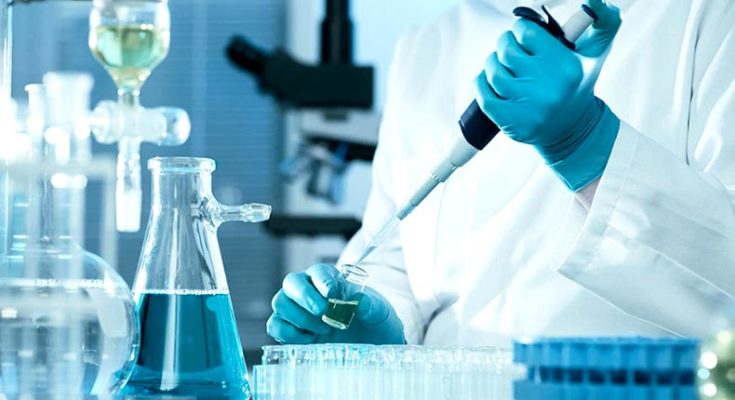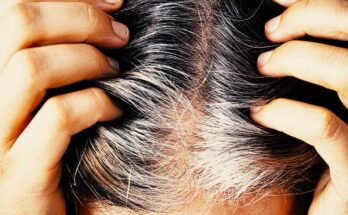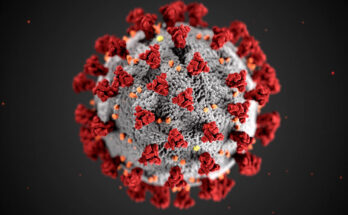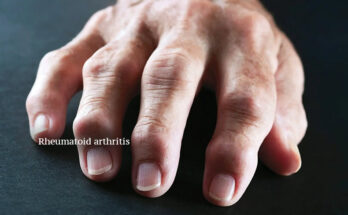Ayurveda will never regain its glory unless nepotism of the Allopathic companies is stopped. Image Courtesy – Medical Xpress
Doctors and scientists are the drivers of the modern system of treatment and medication. They actually create the fate-line of medicine that is going to fight with specific diseases. They do research, observe and plan to manage a streamline of treatment and further development of those medicines.
But, a question may arise here – are they remain unprejudiced all the time? Let me analyze some of the points which the people of the modern era use to face.
Lucrative Offers by Allopathic Pharmaceutical Companies
Let us see an example. The ‘Uniform Code of Pharmaceutical Marketing Practices’ or in brief ‘UCPMP’ prepared by the Department of Pharmaceuticals to control unethical marketing practices by the pharma companies is still awaiting to be implemented as law since December 2014. The current government has been completely inefficacious in bringing a law to punish the pharma companies that bribe doctors. The marketing code of conduct is still stuck in the ‘NITI Aayog’.
According to a report published in the Times of India on April 25, 2018, several doctors were caught taking gifts in cash or in the form of foreign trips. The Medical Council of India stated that the sponsorships could be hauled up and licence would be suspended if found guilty. As a result of that 300 doctors were being summoned by the MCI in the month of November 2014.
There was an allegation against the doctors that an Allahabad-based allopathic medicine company was paying the doctors huge amount of money, cars and flats as a gift, foreign trips of the doctors and their family were being sponsored also. In return of that, the doctors had to prescribe medicines of that particular company despite cheaper alternative medicines were available in the market by better-known companies. No action was being proceeded against that particular company because there was no law to prosecute such allopathic medicine companies. That particular company gained its wealth almost nothing to Rs 400 crore in just five years utilizing the loopholes of the Indian judiciary system.
This is one single example of 2014. Today tie-up of doctors and the diagnostic centres and medical representatives are known to everyone. How will you know about the cases that have been happening continuously? In this situation, how a medicine company would expect that its non-allopathic medicine can be promoted by the doctors?
Read: 70 Corona Vaccines are on the way
Money Involvement for Scientific Research of Allopathic Medicines
Huge money has been involved in the research of allopathic medicines on behalf of private sectors. Indian Council of Medical Research is actually conducting the role of a stamping authority on the research of allopathic medicines. People at the government actually have no target to revive the Indian traditional medicine which was more than 2000 years old.
Very fewer steps are done on behalf of the government of India to fund medical research on the basis of prominently known herbs that have been widely used in the past. An extensive study on ancient literature is essential in combining with modern science.
Although the research on various Ayurvedic plants has been performing by scientists in various parts of India, most of the researches are limited to a certain level. To know the effects of a medicine and side-effects also on the human being is another part of the research. But, the regulatory authority is not promoting those researches due to the involvement of a huge amount of money and market pressure created by the allopathic pharmaceutical companies and the doctors.
You can see various scientific researches on medicinal herb extracts and their functionality on mice:
1. Studies on the immunomodulatory effects of Ashwagandha.
3. Therapeutic Efficacy of Ashwagandha Against Experimental Aspergillosis in Mice.
4. Pharmacological potential of Tinospora cordifolia.
5. Phytochemical and Pharmacological proper ties of Giloy-A miracle vine Tinospora cordifolia.
6. Inhibitory potential of neem (Azadirachta indica Juss) leaves on Dengue virus type-2 replication.
7. Antimicrobial activity of Azadirachta indica (Neem) against Pathogenic Microorganisms.
8. Antitussive effect of Asparagus racemosus root against sulfur dioxide-induced cough in mice.
Indian market is targeted by the big pharmaceutical companies
Global pharma giants always try to capture the Indian market because there has been a lot of potentiality in the Indian market. Their target is to paralyze other systems of treatment so that the allopathic system of treatment rules. Billion dollars are invested in drug research and marketing of allopathic medicines.
Read: Glenmark of Mumbai starts clinical trial of Favipiravir against Covid-19
There is no law on ‘Control of Unethical Practices in Marketing of Drugs
In this situation, allopathic companies are controlling the doctors and drug controllers indirectly by pushing their drugs in the market. Doctors initially take the oath to give service to the people and the country, but ultimately they run for the money. Very few doctors in this country have certain principles to give better service to the people and to do something for the country.
The ‘Uniform Code of Pharmaceuticals Marketing Practices’ was sent to the Ministry of Law to examine in December 2017. The Ministry of Law rejected the concept of keeping it under the Essential Commodities Act. Then this concept has been moved to the table of ‘NItI Aayog’. According to a report published in the Times of India on April 25, 2020, the officials in ‘NITI Aayog’ told the Times of India representatives that final decision has not yet been taken, the discussions are still going on.
The ‘Uniform Code of Pharmaceuticals Marketing Practices’ is prepared in December 2014, and since then it is under consideration. So, why the pharmaceutical companies will not take advantage if there is no law?
Lack of scientific research and clinical trial on humans
Indian traditional medicines which have more than 2000 years old history could not be promoted for optimum research levels. A kind of apathy to the Indian Ayurvedic system has kept the potential herbal medicines into the back-bench.
Read: BCG vaccine may be an alternative to fight against coronavirus
Let us give an example within the current crisis of allopathic medicine generated by the spread of novel coronavirus:
The Scientists of Indian Institute of Science Education and Research, Kalyani of West Bengal has shown a remarkable result in their research on COVID-19 treatment. A team of scientists under the leadership of Jayashri Das Sharma, the Senior Scientist of the Department of Biological Science have been working there.
They have already succeeded in their medicine applying to mice. They have found that the extract of Neem barks is capable to stop the infection of coronavirus in mice. Their research has already been recognized in the International Research Journal, ‘Frontiers Neuroscience’ on April 14, 2020. But, what they found is that the next step of their research was not possible in that institute because of infrastructure. That means the human trial was not possible there.
So, the scientists of Kalyani collaborated with the ‘Karolinska Institute’ at Stockholm, Sweden to perform the human trial. The human trial is currently going on at Karolinska Institute and the result of the human trial will be available within a couple of months.
So, this is the scenario of approach by various organizations and the government in developing proper infrastructure for scientific research.
Sponsoring of medical research is essential
Sponsoring of medical research is very much essential for any medicine to come into the market. Because any scientific research involves a lot of money for passing through the different stages, this includes animal trial and human trial also. If different research on different herbal plants is not done with providing sponsorship, Ayurvedic medicines will not reach up to the mark according to modern scientific standard.
Reference:
https://timesofindia.indiatimes.com/india/law-to-punish-pharma-firms-that-bribed-doctors-languishing-since-2015/articleshow/63913702.cms
Studies on the immunomodulatory effects of Ashwagandha – Author links open overlay panel – Mohammed Ziauddina, Neeta Phansalkar, Pralhad Patki, Sham Diwanay, BhushanPatwardhan – Indian Drugs Research Association, Medinova Diagnostics Center, Pune, India, Department of Microbiology, Medinova Diagnostics Center, Pune, India, Department of Pharmacology, Byramjee Jeejeebhoy Medical College, Pune, India, Department of Microbiology, Abasaheb Garware College, Pune, India, Interdisciplinary School of Health Sciences, University of Pune, Pune 411 007, India – Received 1 June 1995, Revised 25 September 1995, Accepted 6 October 1995, Available online 20 May 2002.
Changes in thyroid hormone concentrations after administration of ashwagandha root extract to adult male mice.
S Panda, School of Life Sciences, D.A. University, Indore, India – Author profile, Search articles by ORCID, 0000-0003-4679-0223, Panda S1, Kar A
Therapeutic Efficacy of Ashwagandha Against Experimental Aspergillosis in Mice – Jayant N. DhuleyPharmacology and Toxicology Division, Research Centre, Hindustan Antibiotics Limited, Pimpri, Pune, 411018, India
Pharmacological potential of Tinospora cordifolia – (Willd.) Miers ex hook. & Thoms. (Giloy): A review – Promila, Sushila Singh and Parvesh Devi
Phytochemical and Pharmacological proper ties of Giloy-A miracle vine Tinospora cordifolia – (Willd.) Miers ex Hook. F. & Thoms, Kumar Narendra*, Khurana S.M. Paul – Amity Institute of Biotechnology, Amity University Haryana, Manesar-122413, Gurgaon, Haryana, (India)
Inhibitory potential of neem (Azadirachta indica Juss) leaves on Dengue virus type-2 replication – Author links open overlay panelM.MParidaCUpadhyayGPandyaA.MJana – Division of Virology, Defence Research and Development Establishment, Gwalior 474 002, MP, India – Received 15 April 2001, Revised 31 October 2001, Accepted 5 November 2001, Available online 29 November 2001.
Antimicrobial activity of Azadirachta indica (Neem) against Pathogenic Microorganisms – Ranjit R. Raut1, Ajit R. Sawant2 and Bhagyashree B. Jamge – Dept. of Biotechnology, Padmashri Vikhe Patil College of Arts, Science and Commerce, Pravranagar, Loni.Tal-Rahata, Ahmednagar-413713 (M.S.),India; 2Dept. of Biotechnology, Pondicherry University, Pondicherry, India – Institute of Bioinformatics and Applied Biotechnology, Bangalore, India
Antitussive effect of Asparagus racemosus root against sulfur dioxide-induced cough in mice – Subhash C.Mandal, AshokKumar C.K., S. Mohana Lakshmi, Sanghamitra Sinha, T. Murugesan, B. P.Saha, M. Pal – Division of Pharmacognosy, Department of Pharmaceutical Technology, Faculty of Engineering and Technology, Jadavpur University, Calcutta-700 032, India – Division of Pharmaceutical Chemistry, Department of Pharmaceutical Technology, Faculty of Engineering and Technology, Jadavpur University, Calcutta-700 032, India – Received 13 October 1999, Accepted 28 January 2000, Available online 10 November 2000.





